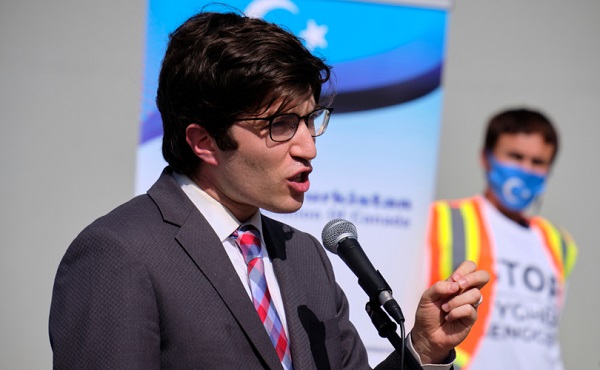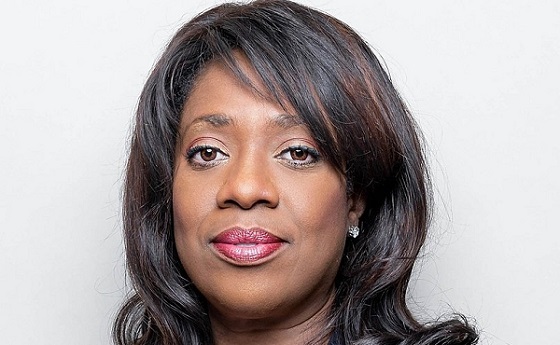National
Freedom Convoy Update: Organizers stressing respect and drivers enjoying incredible Canadian hospitality on the way to Ottawa

As the Freedom Convoy rolls into Ottawa, organizers are laying down the law on their fellow protestors. No one knows how many trucks and how many people are a part of this convoy. There has been a significant amount of concern that fringe groups will attach themselves to the convoy and perpetrate violence. If they do, there’s a good chance their first resistance will come from the convoy participants. Organizers have been emphasizing a respectful and peaceful visit to the nation’s capital. This is the message they’ve posted and shared on their official web pages.
We cannot stress enough how important it is for everyone to do the following:
1. DO NOT enter any government building or government property under any circumstances.
2. Treat all police officers with respect. Front line police officers are already under significant pressure from powerful politicized individuals and local politicians. They are our fellow Canadians, and the police in regions like Peel defended us when they refused to enforce Doug Ford’s draconian Covid restrictions on citizens last year. Please do not put front line officers in a difficult position. Always be respectful, even if they issue you a citation. Just know that most of them are doing so under duress.
3. Keep calm. If you see individuals attempting to bait other truckers and attendees into conflict, report them to the police and our staff, or look to others around you to help with de-escalation. Sometimes it merely requires one calm head in a group to temper us all. Don’t hesitate to be the negotiator!
4. Do not make any type of threat. Threats lead to escalation, which could lead to violence. Please do your absolute best to stifle any aggressive rhetoric. As you know, the legacy media will be present and will use this as ammunition against our movement. Their business model is built on a strategy of destroying reputations. Do not help them profit from destroying your reputation.
If we keep calm and show love and support for one another, many things will happen. We will eventually cause the government to reverse its policy on Covid passports and vaccine mandates as the UK has recently done. We will meet new friends, develop relationships, and there will likely be people who meet during this peaceful protest and fall in love and build a life together. Let’s not sacrifice such a bright future for all of us by loosing our temper.
This is the first step in a long journey to a new golden age of freedom and understanding for one another. Let’s build that future together.
The following video was posted by Tamara Lich an organizer of the Freedom Convoy. This is from an emotional stop in Ontario on Friday where convoy participants were showered with kindness in the form of food, treats, and emotional support.
The cause as posted on the GoFundMe platform (currently at 7.7 million dollars raised)
To our Fellow Canadians, the time for political over reach is over. Our current government is implementing rules and mandates that are destroying the foundation of our businesses, industries and livelihoods. Canadians have been integral to the fabric of humanity in many ways that have shaped the planet.
We are a peaceful country that has helped protect nations across the globe from tyrannical governments who oppressed their people, and now it seems it is happening here. We are taking our fight to the doorsteps of our Federal Government and demanding that they cease all mandates against its people. Small businesses are being destroyed, homes are being destroyed, and people are being mistreated and denied fundamental necessities to survive. It’s our duty as Canadians to put an end to this mandates. It is imperative that this happens because if we don’t our country will no longer be the country we have come to love. We are doing this for our future Generations and to regain our lives back.
Business
Large-scale energy investments remain a pipe dream

I view the recent announcements by the Government of Canada as window dressing, and not addressing the fundamental issue which is that projects are drowning in bureaucratic red tape and regulatory overburden. We don’t need them picking winners and losers, a fool’s errand in my opinion, but rather make it easier to do business within Canada and stop the hemorrhaging of Foreign Direct Investment from this country.
Thanks for reading William’s Substack!
Subscribe for free to receive new posts and support my work.
Changes are afoot—reportedly, carve-outs and tweaks to federal regulations that would help attract investment in a new oil pipeline from Alberta. But any private proponent to come out of this deal will presumably be handpicked to advance through the narrow Bill C-5 window, aided by one-off fixes and exemptions.
That approach can only move us so far. It doesn’t address the underlying problem.
Anyone in the investment world will tell you a patchwork of adjustments is nowhere near enough to unlock the large-scale energy investment this country needs. And from that investor’s perspective, the horizon stretches far beyond a single political cycle. Even if this government promises clarity today in the much-anticipated memorandum of understanding (MOU), who knows whether it will be around by the time any major proposal actually moves forward.
With all of the talk of “nation-building” projects, I have often been asked what my thoughts are about what we must see from the federal government.
The energy sector is the file the feds have to get right. It is by far the largest component of Canadian exports, with oil accounting for $147 billion in 2024 (20 percent of all exports), and energy as a whole accounting for $227 billion of exports (30 percent of all exports).
Furthermore, we are home to some of the largest resource reserves in the world, including oil (third-largest in proven reserves) and natural gas (ninth-largest). Canada needs to wholeheartedly embrace that. Natural resource exceptionalism is exactly what Canada is, and we should be proud of it.
One of the most important factors that drives investment is commodity prices. But that is set by market forces.
Beyond that, I have always said that the two most important things one considers before looking at a project are the rule of law and regulatory certainty.
The Liberal government has been obtuse when it comes to whether it will continue the West Coast tanker ban (Bill C-48) or lift it to make way for a pipeline. But nobody will propose a pipeline without the regulatory and legal certainty that they will not be seriously hindered should they propose to build one.
Meanwhile, the proposed emissions cap is something that sets an incredibly negative tone, a sentiment that is the most influential factor in ensuring funds flow. Finally, the Impact Assessment Act, often referred to as the “no more pipelines bill” (Bill C-69), has started to blur the lines between provincial and federal authority.
All three are supposedly on the table for tweaks or carve-outs. But that may not be enough.
It is interesting that Norway—a country that built its wealth on oil and natural gas—has adopted the mantra that as long as oil is a part of the global economy, it will be the last producer standing. It does so while marrying conventional energy with lower-carbon standards. We should be more like Norway.
Rather than constantly speaking down to the sector, the Canadian government should embrace the wealth that this represents and adopt a similar narrative.
The sector isn’t looking for handouts. Rather, it is looking for certainty, and a government proud of the work that they do and is willing to say so to Canada and the rest of the world. Foreign direct investment outflows have been a huge issue for Canada, and one of the bigger drags on our economy.
Almost all of the major project announcements Prime Minister Mark Carney has made to date have been about existing projects, often decades in the making, which are not really “additive” to the economy and are reflective of the regulatory overburden that industry faces en masse.
I have always said governments are about setting the rules of the game, while it is up to businesses to decide whether they wish to participate or to pick up the ball and look elsewhere.
Capital is mobile and will pursue the best risk-adjusted returns it can find. But the flow of capital from our country proves that Canada is viewed as just too risky for investors.
The government’s job is not to try to pick winners and losers. History has shown that governments are horrible at that. Rather, it should create a risk-appropriate environment with stable and capital-attractive rules in place, and then get out of the way and see where the chips fall.
Link to The Hub article: Large-scale energy investments remain a pipe dream
Formerly the head of institutional equity research at FirstEnergy Capital Corp and ATB Capital Markets. I have been involved in the energy sector in either the sell side or corporately for over 25 years
Thanks for reading William’s Substack!
Subscribe for free to receive new posts and support my work.
Business
New airline compensation rules could threaten regional travel and push up ticket prices

New passenger compensation rules under review could end up harming passengers as well as the country’s aviation sector by forcing airlines to pay for delays and cancellations beyond their control, warns a new report published this morning by the MEI.
“Air travel in Canada is already unaffordable and inaccessible,” says Gabriel Giguère, senior public policy analyst at the MEI. “New rules that force airlines to cover costs they can’t control would only make a bad situation worse.”
Introduced in 2023 by then-Transport Minister Omar Alghabra, the proposed amendment to the Air Passenger Protection Regulations would make airlines liable for compensation in all cases except those deemed “exceptional.” Under the current rules, compensation applies only when the airline is directly responsible for the disruption.
If adopted, the new framework would require Canadian airlines to pay at least $400 per passenger for any “unexceptional” cancellation or delay exceeding three hours, regardless of fault. Moreover, the definition of “exceptional circumstances” remains vague and incomplete, creating regulatory uncertainty.
“A presumed-guilty approach could upend airline operations,” notes Mr. Giguère. “Reversing the burden of proof introduces another layer of bureaucracy and litigation, which are costs that will inevitably be passed on to consumers.”
The Canadian Transportation Agency estimates that these changes would impose over $512 million in additional costs on the industry over ten years, leading to higher ticket prices and potentially reducing regional air service.
Canadians already pay some of the highest airfares in the world, largely due to government-imposed fees. Passengers directly cover the Air Travellers Security Charge—$9.94 per domestic flight and $34.42 per international flight—and indirectly pay airport rent through Airport Improvement Fees included on every ticket.
In 2024 alone, airport authorities remitted a record $494.8 million in rent to the federal government, $75.6 million more than the previous year and 68 per cent higher than a decade earlier.
“This new regulation risks being the final blow to regional air travel,” warns Mr. Giguère. “Routes connecting smaller communities will be the first to disappear as costs rise and they become less profitable.”
For instance, a three-hour and one minute delay on a Montreal–Saguenay flight with 85 passengers would cost an airline roughly $33,000 in compensation. It would take approximately 61 incident-free return flights to recoup that cost.
Regional air service has already declined by 34 per cent since 2019, and the added burden of this proposed regulation could further reduce connectivity within Canada. It would also hurt Canadian airlines’ competitiveness relative to U.S. carriers operating out of airports just south of the border, whose passengers already enjoy lower fares.
“If the federal government truly wants to make air travel more affordable,” says Mr. Giguère, “it should start by cutting its own excessive fees instead of scapegoating airlines for political gain.”
You can read the Economic Note here.
* * *
The MEI is an independent public policy think tank with offices in Montreal, Ottawa, and Calgary. Through its publications, media appearances, and advisory services to policymakers, the MEI stimulates public policy debate and reforms based on sound economics and entrepreneurship.
-

 COVID-1911 hours ago
COVID-1911 hours agoNew report warns Ottawa’s ‘nudge’ unit erodes democracy and public trust
-

 Great Reset2 days ago
Great Reset2 days agoEXCLUSIVE: A Provincial RCMP Veterans’ Association IS TARGETING VETERANS with Euthanasia
-

 Health2 days ago
Health2 days agoDisabled Canadians petition Parliament to reverse MAiD for non-terminal conditions
-

 Daily Caller2 days ago
Daily Caller2 days agoSpreading Sedition? Media Defends Democrats Calling On Soldiers And Officers To Defy Chain Of Command
-

 Crime1 day ago
Crime1 day agoHow Global Organized Crime Took Root In Canada
-

 Digital ID2 days ago
Digital ID2 days agoLeslyn Lewis urges fellow MPs to oppose Liberal push for mandatory digital IDs
-

 Business2 days ago
Business2 days agoThe Payout Path For Indigenous Claims Is Now National Policy
-

 Energy1 day ago
Energy1 day agoExpanding Canadian energy production could help lower global emissions









